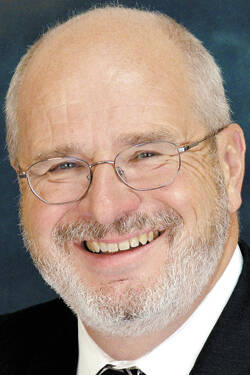So many years.
So many stories.
So many words.
Forty years ago, I became a columnist for the late and much-missed Indianapolis News. My mentor was the News’ longtime opinion editor, the late Harvey Jacobs. He told me it was time for me to take on a fresh challenge.
He said that writing a column, which he’d done for decades, could be an exercise in futility. Even when you wrote a good one, he said, there was always another deadline waiting, another long stretch of empty white space for the columnist to fill with something interesting, compelling or just fun.
It was a job that never ended.
Harvey told me I’d often fail at the beginning. That I’d struggle to find my voice. That there would be times when I’d wonder why I’d ever chosen a profession as maddening as that of the working writer.
But then I’d write a column, he said, that I knew worked, one that clicked with readers, one that made a story or an idea come to life on the page.
And then I’d be hooked, because I’d want to do it again.
Harvey was right, on all counts.
I’d wanted to be a columnist for as long as I knew what one was and what they did. Writing fascinated me from childhood. When I was in second grade, I routinely got in trouble with my teacher for sneaking a pad of paper and pencil under my desk and sketching out stories when the classwork bored me.
But even though the idea of writing allured me, I had no idea of what being a writer required—all the reading, reporting, thinking, writing and, yes, rewriting the work demanded. Like so many things in life, becoming competent at writing is relatively easy, but becoming good at it involves a lifetime commitment.
Through the years, a few rules have guided me.
Among them:
—If a reader doesn’t understand something I’ve written, it’s never the reader’s fault. It’s my job as a writer to explain or describe something so clearly that anyone can grasp it.
—This is true even if the reader skipped over the part where I did spell things out. It’s also my responsibility as a writer to hold the reader’s interest.
—Even the most complex ideas can be conveyed in simple words. There are times to use big words—mostly for variety in phrasing or because having an extra syllable or two helps the rhythm of a sentence or paragraph—but, when in doubt, always choose the smaller, simpler word.
—Remember that a column is part of a conversation and write with readers in mind. The only place a professional writer should write simply to please himself or herself is in his or her diary. Think always of how readers will respond to a phrase, a sentence, a paragraph or even the whole piece—what will puzzle or confuse them, what will bore them, what will lose them.
—If you have a good story, often the best thing a writer can do is get out of the way and let the story tell itself. If a writer just shows readers what made something interesting to him or her, readers most likely will find it interesting, too.
—This is perhaps the most important one—care. If the writer isn’t invested in what he or she writes, no one else will be either.
The columns I have written over these past four decades that I consider the most successful are the ones where I most closely followed these rules.
Such as the time early on in my career when I told the story of an elderly woman who said reading the morning newspaper often made her cry because it reminded her of how she and her late husband used to swap sections and stories over breakfast.
Or the time I wrote about a longtime veteran of the U.S. Air Force who happened to be gay who draped the Stars and Stripes over his shoulders after a homophobic Indiana legislative leader booted him out of a committee hearing.
Or … or … or.
That’s the thing about this gig.
There are so many fascinating people in this world, so many fascinating tales.
And so many ways to tell them.
So many words.
So many stories.
So many years.
John Krull is director of Franklin College’s Pulliam School of Journalism and publisher of TheStatehouseFile.com, a news website powered by Franklin College journalism students. The views expressed are those of the author only and should not be attributed to Franklin College. Send comments to [email protected].





